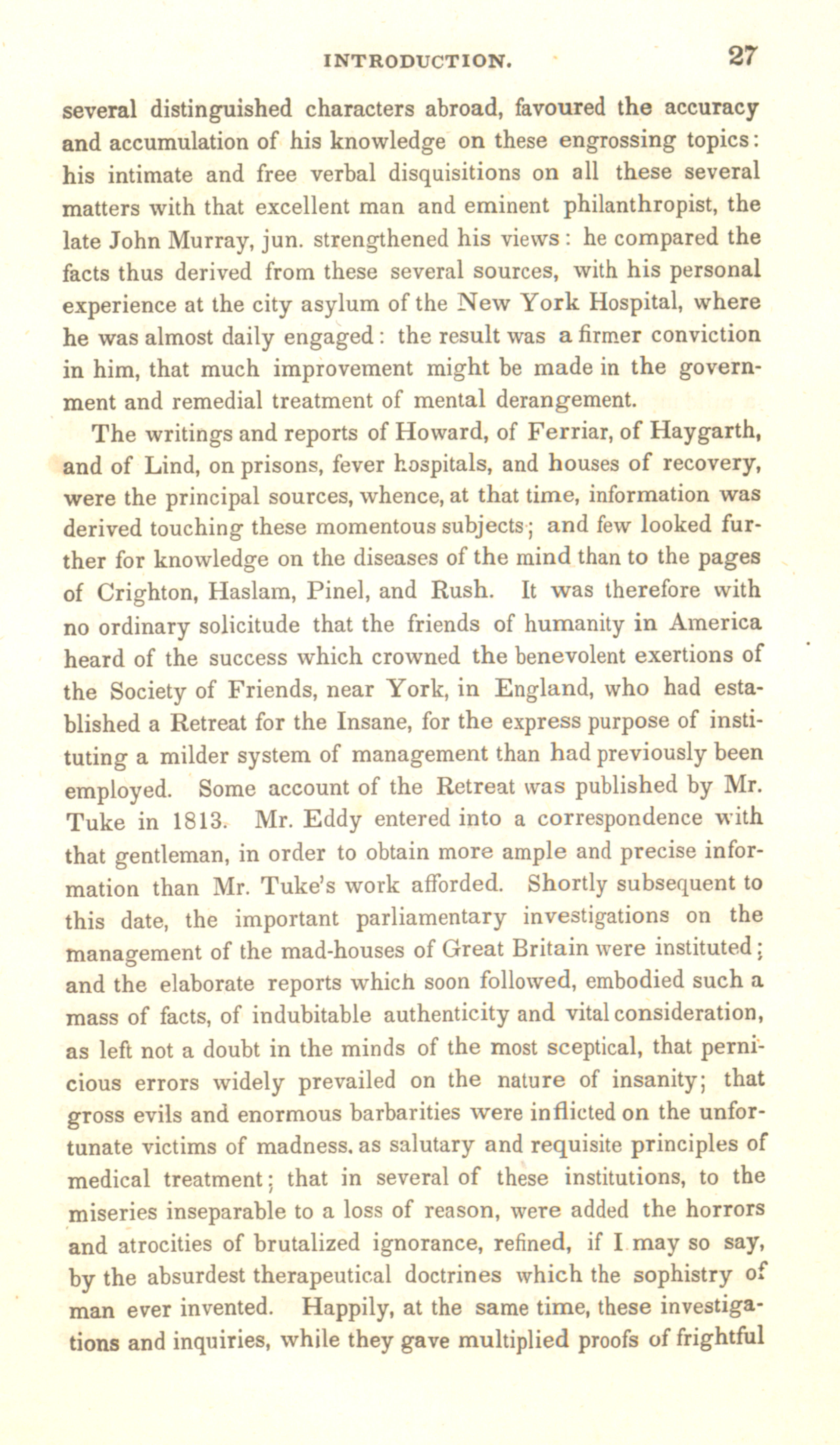several distinguished
characters abroad, favoured the accuracy
and accumulation of his
knowledge on these engrossing topics:
his intimate and free verbal
disquisitions on all these several
matters with that excellent man
and eminent philanthropist, the
late John
Murray, jun.
Person Information
facts thus derived from these several sources, with his personal
experience at the city asylum of the New York Hospital
Place Information
he was almost daily engaged: the result was a firmer conviction
in him, that much improvement might be made in the govern-
ment and remedial treatment of mental derangement.
The writings and reports of Howard
Person Information
and of Lind, on prisons, fever hospitals, and houses of recovery,
were the principal sources, whence, at that time, information was
derived touching these momentous subjects; and few looked fur-
ther for knowledge on the diseases of the mind than to the pages
of Crighton, Haslam, Pinel, and Rush. It was therefore with
no ordinary solicitude that the friends of humanity in America
heard of the success which crowned the benevolent exertions of
the Society of Friends, near York
Place Information
blished a Retreat for the Insane, for the express purpose of insti-
tuting a milder system of management than had previously been
employed. Some account of the Retreat was published by Mr.
Tuke
Person Information
Person Information
that gentleman, in order to obtain more ample and precise infor
mation than Mr. Tuke
Person Information
this date, the important parliamentary investigations on the
management of the mad-houses of Great Britain
Place Information
and the elaborate reports which soon followed, embodied such a
mass of facts, of indubitable authenticity and vital consideration,
as left not a doubt in the minds of the most sceptical, that perni-
cious errors widely prevailed on the nature of insanity; that
gross evils and enormous barbarities were inflicted on the unfor-
tunate victims of madness, as salutary and requisite principles of
medical treatment; that in several of these institutions, to the
miseries inseparable to a loss of reason, were added the horrors
and atrocities of brutalized ignorance, refined, if I may so say,
by the absurdest therapeutical doctrines which the sophistry of
man ever invented. Happily, at the same time, these investiga-
tions and inquiries, while they gave multiplied proofs of frightful

